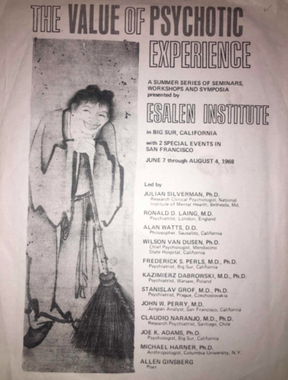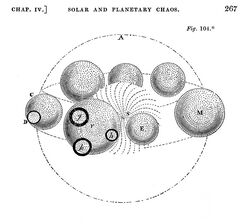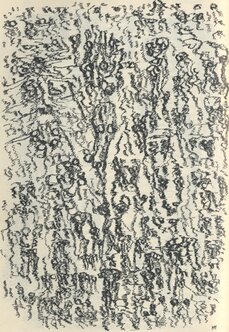- HOME
- CONFERENCE
-
SCHEDULE
- Launch & 'Excluded'
- Panel 1: Rethinking Psychedelics, Madness, and Awakening
- Panel 2: Breakdown or Breakthrough?
- Panel 3: Histories and Legacies I
- Panel 4: Christian Traditions
- Panel 5: Envisioning Harm Reduction Models Outside of Clinical Spaces
- Panel 6: Earth Visions, Psychedelics, and Harm Reduction
- Panel 7: Envisioning Collective Healing
- Panel 8: Histories and Legacies II
- Panel 9: Translations and Transformations
- Discussion Panel 1: Abuses of Power in Psychedelic Spaces
- Discussion Panel 2: The Madness of the Gender Binary
- Discussion Panel 3: New Forms of Care for BIPOC Communities
- Discussion Panel 4: Psychiatric Abolition
- Final Reflections
- RESOURCES
- BLOG
- CONTACT
- DONATE
|
This conference grew out of a series of conversations in 2017-2019 between Will Hall, Patricia Kubala, and Tehseen Noorani. All of us had been involved in one way or another in the study of psychedelics, madness, or both. Previously, Will had developed a project proposal on these themes with Asha Passalacqua and Dina Tyler, while Tehseen was two years into a research study looking at the connections. Following developments in the emerging psychedelic “renaissance” and observing the rehabilitation of psychedelics as FDA-approved medicines, we were troubled by what seemed to be a consensus across biomedical, underground, and “spiritual emergence” discourses that psychedelics were not appropriate for those considered mad. From our lived experiences and worlds of research, we knew that historically this was far from always the case and that people with experiences diagnosed as manic, bipolar, or psychotic have taken psychedelics and entheogens and found them useful in healing and recovery. We realized there was an urgent need for a conference at these intersections.
|
|
In the spring of 2019, we began brainstorming and organizing to create an event that would bring together different communities to debate and discuss these issues and to hopefully re-imagine and envision community-based, harm reduction approaches to addressing them. When speaking on the intersections of madness and psychedelics at Breaking Convention 2019 in London, Tehseen met Kitty Sipple. Kitty was also presenting on these topics at the very same time but on a different panel. Kitty joined the organizing committee in the fall of 2019, and we prepared to hold the conference in the Bay Area in April 2020. With the Center for Swedenborgian Studies at the Graduate Theological Union (GTU) as an initial sponsor, our venues included the Chapel of the Great Commission in Berkeley, The Haven Community in Oakland, and the The Center in San Francisco. Reconfiguring to an online conference in the wake of Covid-19, Erica Hua Fletcher joined the team in September 2020. She has worked within and alongside US Mad movements while researching her PhD in the health humanities, and is now involved in psychiatric user/survivor-engaged public mental health research. Erica brought with her an expertise in accessibility issues and soon became a core member of the organizing team.
|
|
As we were planning the event, we were also witnessing controversies and disagreements and painful reckonings in these communities around sexual violence and on-going inequities of race, gender, class, labor, and so forth. These erupted into and interrupted our own organizing process, and together with COVID-19 re-configured the way we have envisioned this conference. We want to name that we are seeking to bring together communities that not only have deep mistrust of each other but also deep fractures within them. As reflected in our statement of values, it is our hope that this conference will be part of on-going efforts, not limited to the worlds of psychedelics and mad studies, to honestly and openly reckon with the legacies of racist and colonial violence that fundamentally structure our world and our possibilities of relating to each other. We hope that this conference will contribute to envisioning and enacting other ways of living and being together, including our understanding of psychedelics, madness, and spiritual awakening.
|
|
|
|
- HOME
- CONFERENCE
-
SCHEDULE
- Launch & 'Excluded'
- Panel 1: Rethinking Psychedelics, Madness, and Awakening
- Panel 2: Breakdown or Breakthrough?
- Panel 3: Histories and Legacies I
- Panel 4: Christian Traditions
- Panel 5: Envisioning Harm Reduction Models Outside of Clinical Spaces
- Panel 6: Earth Visions, Psychedelics, and Harm Reduction
- Panel 7: Envisioning Collective Healing
- Panel 8: Histories and Legacies II
- Panel 9: Translations and Transformations
- Discussion Panel 1: Abuses of Power in Psychedelic Spaces
- Discussion Panel 2: The Madness of the Gender Binary
- Discussion Panel 3: New Forms of Care for BIPOC Communities
- Discussion Panel 4: Psychiatric Abolition
- Final Reflections
- RESOURCES
- BLOG
- CONTACT
- DONATE


